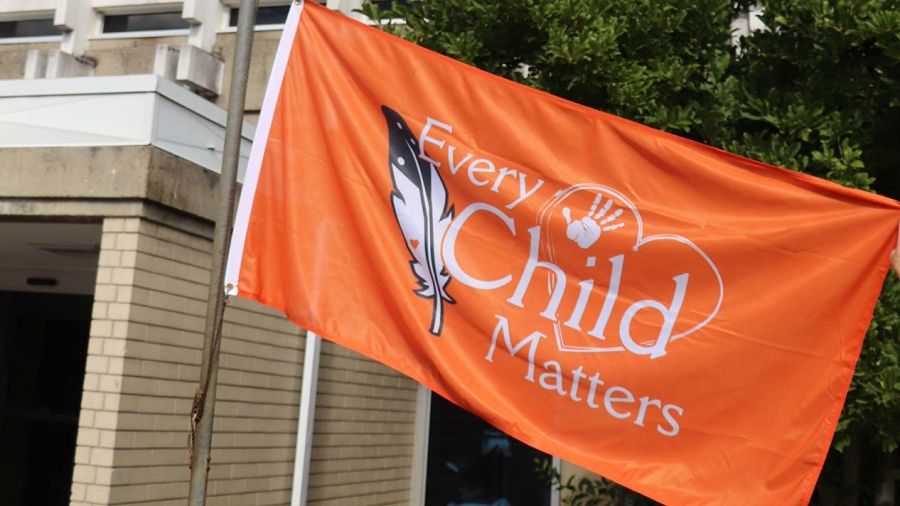
Gaining understanding, sharing culture and finding better ways forward was the focus at Selkirk College during the lead-up to the National Day for Truth and Reconciliation.
From coast to coast to coast, Canada marks the National Day for Truth and Reconciliation on September 30. The day recognizes the impacts of the Canadian residential school system and honours the resilience and dignity of survivors, those who didn’t come home, and their families and communities.
At Selkirk College, the week leading into the day is an opportunity to build on its commitment to Indigenization and reconciliation in the college community and beyond through observance, education and action.
“At the heart of reconciliation is the commitment to rebuild trust and repair relationships between Indigenous and non-Indigenous peoples,” says Taya Whitehead, vice president of education & students. “This is a journey that requires all of us to walk together, to listen, learn and take responsibility for the ways in which we, knowingly or unknowingly, contribute to systems of oppression.”
Whitehead was one of the speakers who took part in the flag-raising ceremony at the Castlegar Campus on September 23. The orange Every Child Matters(TM) flag was designed by Ktunaxa artist Carol Louie and the ceremony included impactful words from a residential school survivor.
Students, employees and community members attended the flag-raising ceremony. Many wore symbolic orange shirts, which were first introduced in 2013 by Phyllis (Jack) Webstad, who began telling the story of her first day at residential school near Williams Lake when her brilliant new orange shirt, bought by her grandmother, was taken from her as a six-year-old girl. Orange Shirt Day also takes place on September 30 as part of the effort to open doors to global conversation on all aspects of residential schools.
“Post-secondary institutions have a unique opportunity to foster dialogue, promote understanding and challenge the narratives that have marginalized Indigenous voices for so long,” said Whitehead, herself Selkirk College alumni who began her post-secondary journey in the Early Childhood Care & Education and Human Service Diploma programs.
“Incorporating Indigenous perspectives into curricula, supporting Indigenous-led research, and creating spaces for Indigenous students to thrive are critical components of this effort. Education is not just about acquiring information—it is about developing the tools to think critically, challenge injustice and contribute to a more equitable and inclusive society.”
Other events tied into the lead-up to September 30 included a talk by traditional artisan Shawn Brigman—a descendant of northern Plateau bands (snʕáyckst/Sinixt, sənpʕʷilx/San Poil and tk’emlúps te Secwepemc/Shuswap)—who crafts contemporary Salishan sturgeon nose canoes, including one built for Selkirk College in 2015.
Students and employees were invited to spend time during the week with Ann-Marie Smith, Indigenous cultural assistant, for beading orange shirt pins. A tipi was erected on campus and hands-on demonstrations and displays were featured to help build knowledge of Plateau technologies. These events and sharing reinforce that Indigenous Peoples cultures and teachings are still here and can be graciously shared.
Though the nation will pause on September 30 for a cross-country reflection, the work of Indigenization and reconciliation at Selkirk College continues throughout the year. The Indigenous Services team offers many opportunities for both Indigenous and non-Indigenous students to learn more, supports are available for learners on a continual basis and efforts to increase understanding are a constant on campus.
“We cannot forget that reconciliation is not a one-time event, nor a box to be checked off,” Whitehead said. “It is an ongoing process, one that requires continuous reflection, action, and accountability. It also calls for courage—the courage to confront painful histories, the courage to unlearn prejudices, and the courage to build a better future.”
Learn about the National Day for Truth and Reconciliation, including local events and resources.
Sustainable Development Goal (SDG) #4: Ensure inclusive and equitable quality education and promote lifelong learning opportunities for all.



